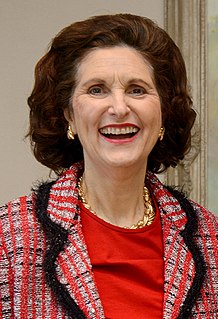A Quote by Audra McDonald
Maybe it's because my uncle and my parents were always very involved with the civil rights movement, so I just grew up and I was raised that you have to speak out and look out for your fellow man, woman, and child.
Related Quotes
I was involved in the civil rights movement way back in the late '50s and through the '60s and '70s. I was doing a civil rights musical here in Los Angeles and we sang at one of the rallies where Dr. Martin Luther King spoke, and I remember the thrill I felt when we were introduced to him. To have him shake your hand was an absolutely unforgettable experience. Even before I could vote, I was involved in the political arena.
Maybe, just maybe, there should be a graphic novel dealing with the contribution of the women of the civil rights movement, to tell their story. The pain, the hurt. They raised their children. Some were working as maids, but when they left those kitchens, those homes, they made it to the mass meetings. And they put their bodies on the lines, also.
In less than a century we experienced great movement. The youth movement! The labor movement! The civil rights movement! The peace movement! The solidarity movement! The women's movement! The disability movement! The disarmament movement! The gay rights movement! The environmental movement! Movement! Transformation! Is there any reason to believe we are done?
Yes, it is hard out there. But hard is relative. I come from a middle-class family, my parents are academics. I was born after the Civil Rights movement, I was a toddler during the women's movement, I live in the United States of America, all of which means I am allowed to own my freedom, my rights, my voice and my uterus.



































